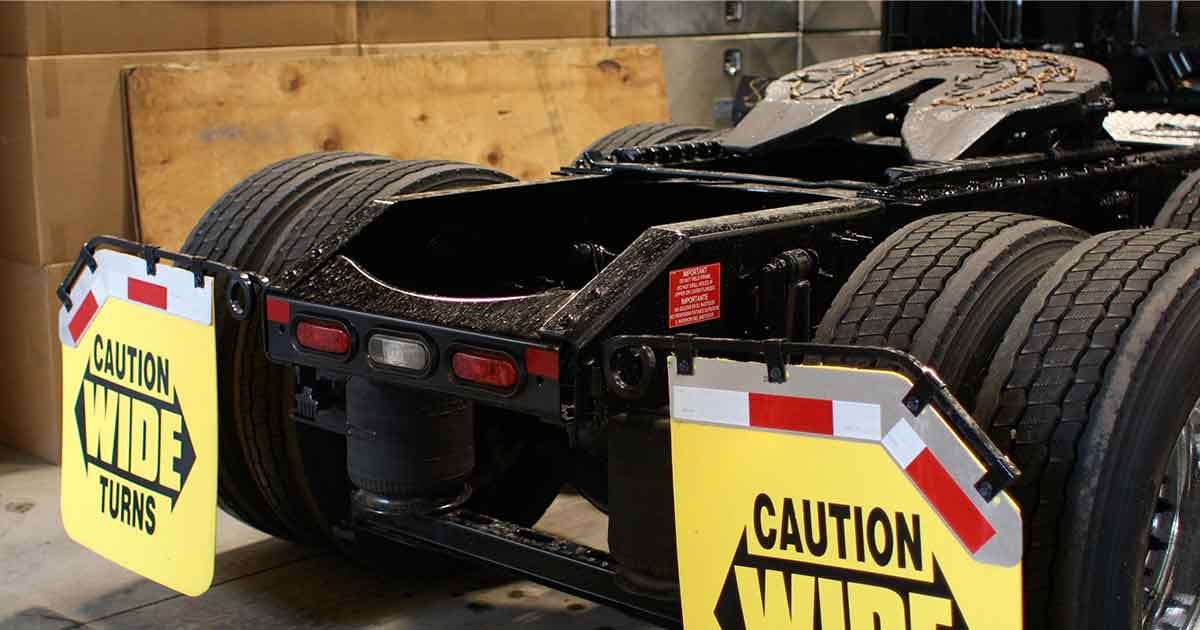
Diesel mechanics have no shortage of opportunities. As a mechanic or, if you prefer, a technician, you can use your talents in almost any industry. Nearly all of them — from construction and aviation to agriculture, manufacturing and power production — lean on diesel mechanics in order to remain operationally efficient.
This level of demand for your expertise is exciting, but it can also leave you wondering how you can possibly choose which industry to join.
For many, this decision comes down to three factors:
- How much money they’ll make
- The development and growth opportunities they’ll have
- Their level of interest in the industry and work
Trucking is another industry that’s heavily reliant on diesel technicians. It also checks many of these boxes; you can develop here, diesel mechanics get paid well and there are a lot of opportunities in this vast industry.
If you’re looking for the next (or first) stage in your diesel mechanic career, the trucking industry is worth considering.
Within trucking, there are two major lanes for a diesel mechanic to explore: working for a fleet or working for a dealership.
Both of these are excellent options — in unique ways — so it’s important to seriously consider them both. To help you do so, this article will overview the pros and cons of working as a diesel mechanic for a private fleet vs. those of working at a dealership. Although there’s a lot to know about each of these career paths, we’ve separated all you need to know into the following sections:
- What does it mean to be a fleet technician?
- Advantages of working for a fleet as a diesel mechanic
- Disadvantages of working for a fleet as a diesel mechanic
- What does it mean to be a dealership technician?
- Advantages of working for a dealership as a diesel mechanic
- Disadvantages of working for a dealership as a diesel mechanic
Truthfully, it’s not uncommon for diesel technicians to work for both a fleet and a dealership at some point. Each of these offers a unique opportunity to further your skills, knowledge and career.
What Does it Mean to Be a Fleet Technician?
Fleet technicians are mechanics who are employed by a trucking company to work on its trucks. Trucking companies (like Anderson Trucking Service) rely on fleet efficiency to make money. Achieving efficiency means keeping trucks on the road and hauling freight continuously.
Every semi-truck requires routine maintenance to remain healthy and many of them break down eventually. It’s the maintenance staff’s job to keep trucks up and running. Doing this requires knowledge of diesel engines and their components and an understanding of various semi-truck systems/mechanisms. Often, fleet mechanics are tasked with working on trucks of all ages that are produced by a gambit of manufacturers.
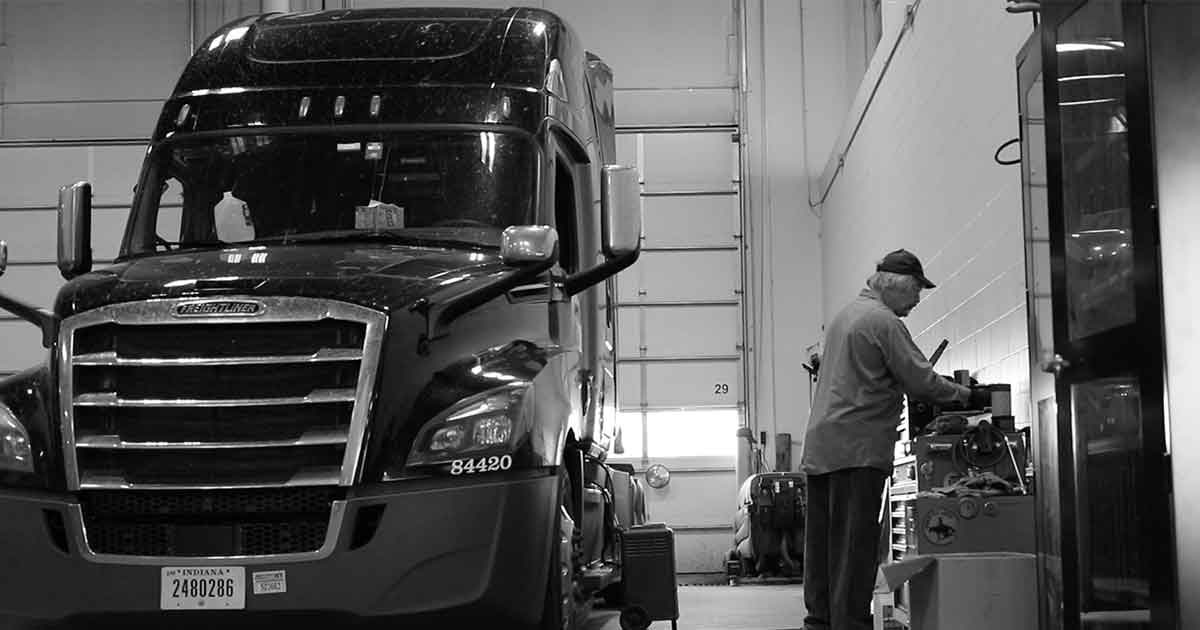
Advantages of Working For a Fleet as a Diesel Mechanic
Like lending your talents to a dealership, being a mechanic for a fleet — regardless of its size — has some distinct advantages. Namely, the three largest upsides of working for a fleet instead of in a dealership setting are:
- You’ll have more consistent and predictable work
- You’ll work on a wider variety of equipment
- You’ll be in a good learning environment
1. You’ll Have More Consistent and Predictable Work
Most fleets, especially the larger ones (50+ trucks), have a system in place for managing maintenance and breakdowns. This system makes your job as a diesel technician relatively predictable, allowing you insight into exactly what you’ll be working on well into the future.
Whereas in a dealership setting your new priority could roll in the door anytime, fleet maintenance is more predictable and, therefore, manageable.
2. You’ll Work on a Wider Variety of Equipment
While most fleets are selective about the types of trucks they purchase, many pull from at least a handful of different manufacturers. As a result, expect to get experience handling, inspecting, diagnosing and repairing semi-trucks/equipment from an array of companies — which can be an interesting upside of working for a fleet.
Beyond their make and model, the trucks you work on may range in age from brand new to 10 years old. This can make a job within a fleet more challenging, exposing you to problems that arise within various equipment.
3. You’ll Be in a Good Learning Environment
There is always plenty of work to be done when working for a fleet. The importance of keeping trucks up and running can’t be overstated. However, in many cases, trucking companies are prepared for breakdowns and often have an extra truck (or two) to use in the interim.
As a result, working for a trucking company tends to be a slower environment than working in a dealership. In turn, this allows time for new mechanics to shadow/train with a seasoned technician for a portion of their day where they can ask questions and garner insights.
This can be a valuable experience, allowing diesel mechanics to learn a variety of skills quickly.
Related: What Certifications Do I Need as a Diesel Technician?
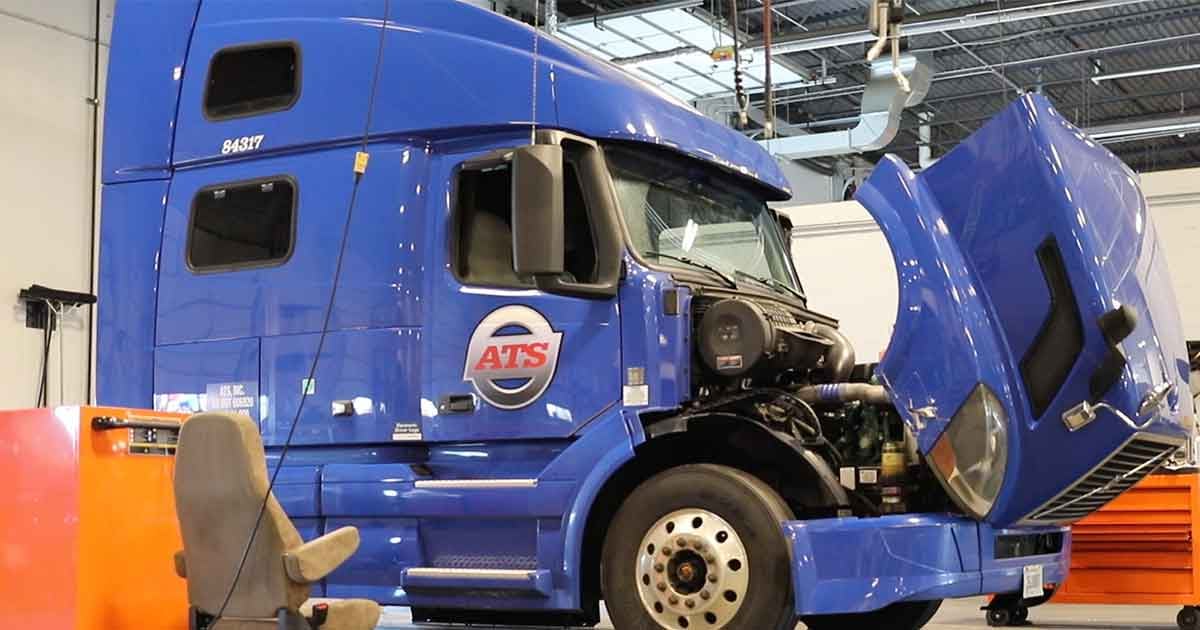
Disadvantages of Working For a Fleet as a Diesel Mechanic
At this point, applying to a fleet might seem like the best path for you, given the advantages we’ve just covered. This is an excellent way for mechanics to hone their craft in many situations.
Before you jump in feet first, though, here are two realities of working for a trucking company to keep in mind:
- You may not have as much access to new technology
- You will possibly have to work on older equipment
1. You May Not Have as Much Access to New Technology
Compared to dealerships that don’t have the same expenses, some trucking companies choose not to invest as readily in new technologies for their technicians and mechanics to use.
While this isn’t the case everywhere., you could end up using aged tools and technology in a fleet setting, which can be a disadvantage for those who want to remain on the cutting edge by continually using the latest and greatest.
2. You Will Possibly Have to Work on Older Equipment
Semi-trucks and other transportation equipment are really expensive to purchase. This makes it hard for trucking companies to buy brand-new trucks and trailers regularly. Carriers may keep trucks in rotation for 5-10 years (or more), before swapping them out for something new.
As a diesel technician for a fleet, you may not have access to newer equipment. This can be frustrating when things break down more regularly or when dated equipment gets more challenging to repair.
What Does it Mean to be a Dealership Technician?
As a diesel mechanic employed by a semi-truck dealership, your job is to work on, test, repair and service the commercial motor vehicles (semi-trucks) produced by a specific manufacturer or set of manufacturers.
Whether it’s new (hot off the line) equipment for sale, or a used vehicle brought in for repair, dealership technicians are expected to uncover and solve mechanical issues for the vehicles their dealership specializes in.
This includes ordering parts, fixing engines and working on brakes, steering components and fuel injection systems. You’ll also be responsible for diagnosing a wide variety of issues to ensure every truck runs efficiently.
Often, dealerships are fast-paced, quick-turn environments where customers await their solution anxiously. Having a truck (especially if it’s their only one) in the shop can be a significant burden.
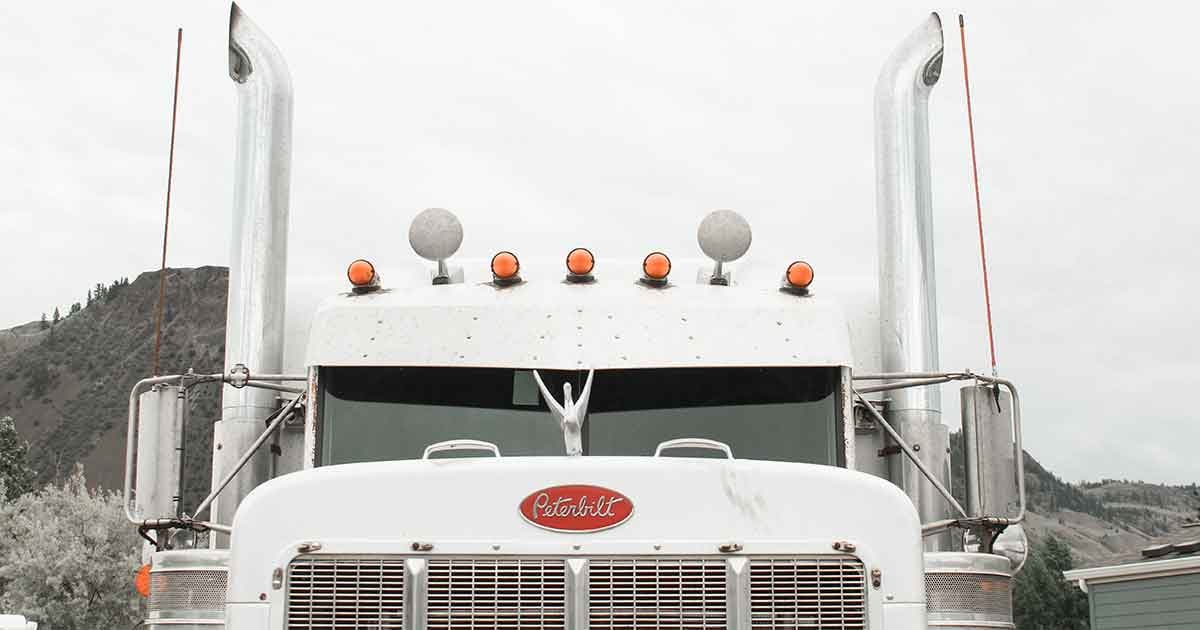
Advantages of Working For a Dealership as a Diesel Mechanic
Working for a dealership is a great route to go, especially if you want to become really specialized in your craft. In a matter of years, a seasoned technician can become an expert in the types of trucks their dealership trades in.
Here are the three largest advantages of working for a dealership as a diesel mechanic:
- You will receive regular factory training
- You’ll have access to the latest equipment and technology
- You can participate in diesel technician competitions
1. You’ll Receive Regular Factory Training
Mechanics who work for a dealership are regularly trained in the intricacies of examining, diagnosing and repairing the semi-trucks manufactured by that dealership’s main supplier.
The manufacturer typically offers this training and exposes dealership mechanics to new technology, adjustments and updates made from one model to another. These trainings also include introducing tactics for working on and repairing issues with a manufacturer's semi-trucks.
As a diesel technician, expect to receive this instruction on a regular basis (semi-yearly, annually, etc.) when employed by a dealership.
Related: How to Succeed as a Diesel Mechanic: The 6 Skills You Need
2. You’ll Have Access to the Latest Equipment and Technology
Running a successful dealership, particularly in today’s market, means offering top-of-the-line service and equipment. To do so, dealerships invest heavily in technology and innovation, giving their mechanics access to the best tools and devices available.
If you decide to work for a dealership, you’ll be exposed to innovation as your company invests in it. In such a fast-paced environment, a dealership’s service department needs to be efficient and effective. Technology helps it get there.
3. You Can Participate in Diesel Technician Competitions
Many large truck manufacturers (like Volvo) put on technician competitions where dealership mechanics from around the nation compete to see who is the best among them. This is an exciting way to put your knowledge and skills to the test against other excellent mechanics.
These competitions are usually hosted by manufacturers, allowing those certified by them to participate. That said, recently larger fleets (like Ruan) have started competitions of their own.
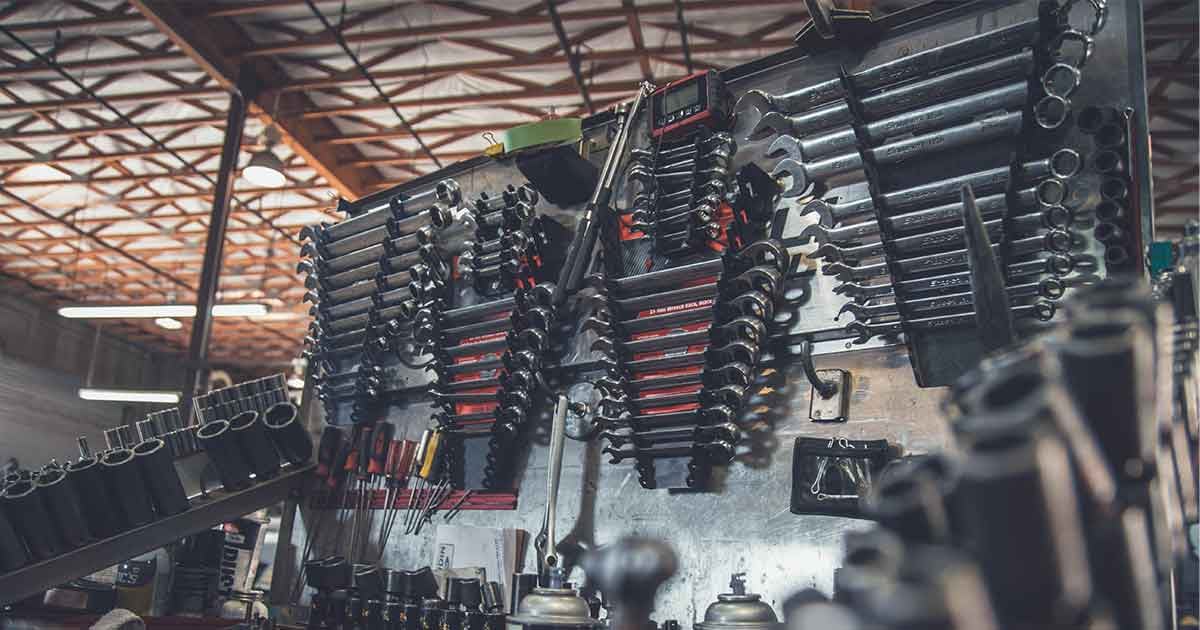
Disadvantages of Working For a Dealership as a Diesel Mechanic
Dealerships create an environment for mechanics to hone their skills in servicing a select segment of the semi-truck market. Add in the fact that many dealerships invest heavily in technology to ensure they’re as efficient as possible and this might seem like a worthy path to pursue. It likely is.
However, before you make a decision, here are three disadvantages of working for a dealership as a diesel mechanic:
- You might get pigeonholed into servicing a single manufacturer
- Dealerships aren’t as much of a learning environment
- You might have to fix other people’s mistakes
1. You Might Get Pigeonholed Into a Single Manufacturer
Since diesel mechanics work on a selection of semi trucks (built by one or two manufacturers), they often aren’t given the opportunity to learn to service other trucks. This creates knowledge gaps when it comes to trucks manufactured by other companies.
2. Dealerships Aren’t as Much of a Learning Environment
Due to the fast-paced and unpredictable nature of working for a dealership, new technicians aren’t offered the same learning opportunities they would be when working for a fleet. Often, dealerships are in “all hands on deck” mode, limiting shadowing/training opportunities.
This makes it harder for brand-new mechanics to learn their trade. A dealership is often better for more seasoned technicians (those with a few years of experience). While this isn’t exclusively the case and many dealerships hire fresh mechanics, you might not get the same level of training attention in a dealership.
3. You Might Have to Fix Other People’s Mistakes
Dealerships specialize in servicing and providing vehicles from a selection of manufacturers. This equipment, though produced by the same company, is often in variable shape and from a gambit of production years. Over time, these trucks receive maintenance, usually from a variety of providers and sometimes you aren’t given the vehicle’s complete history. This can lead to issues for you when you go to fix or update a component that’s been improperly worked on before.
It’s frustrating to repair something that was incorrectly fixed in the past, especially since you’re on a tight timeline. Although it’s not your fault, a slow turnaround time might reflect poorly on your dealership.
Should You Work for a Fleet or a Dealership?
At the end of the day, diesel mechanics experience a relatively similar reality whether they work for a dealership or are employed by a company to maintain its fleet.
The pay is comparable, the hours are nearly identical (fleets offer a third shift more often than dealerships do), the work/life balance is very similar and the opportunity for advancement is the same (you’ll have more opportunities to advance at larger companies).
Now that you know the objective pros and cons of working at both places, your next step is pretty simple: Choose which option is right for you and find a reputable employer in your area.
You can pinpoint reputable dealerships and fleets by asking these kinds of questions:
Fleet:
- What average age of equipment does your fleet have?
- What are the growth opportunities?
- Are there training opportunities?
- What diagnostic tools are available?
- What will my job duties be?
- How busy are you and what will I do if it’s slow?
Dealership:
- How busy does the dealership stay?
- If it’s slow will I be sent home or what other job duties will be expected of me?
- What will my main job duties be?
- What does my growth plan look like?
- How long before I can start taking manufacturer-specific training?
Don’t worry — you can always switch from working at a dealership to a fleet (or vice-versa) if you want to.
Regardless of where you start, you’ve chosen an excellent industry to work in and trade to pursue. Read “What Certifications Do I Need as a Diesel Technician?” next for an overview of the certifications you might want to pursue in the future.
ATS is hiring technicians in multiple locations across the U.S. Check out our open positions today and start your transportation industry career with a stable employer.


